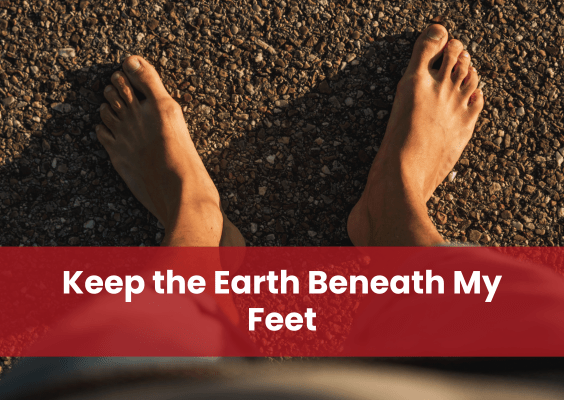
Rabbi Matthew Nitzanim
(Summer Faculty ’22, ’23)
As Moshe inches closer to the mysterious bush in the distance, a lowly shrubbery caught in a fiery blaze yet impervious to the flames, he hears his very first words of divine instruction. God calls out from within the flame, and tells Moshe to come no closer until he has removed his shoes, “for the place upon which you stand is sacred ground.” (Shemot 3:5)
Rav Chayim Tyrer of Czernowitz, in his Chassidic commentary on the Torah Be’er Mayim Chayim, is puzzled by this directive. What was it about this revelatory experience that required Moshe to stand barefoot? Even at the giving of the Torah, just a few years later in that very place, Moshe is given no instruction to remove his shoes.
The Be’er Mayim Chayim draws our attention to the message God is about to relay to Moshe. The novice leader is about to be told that a great redemption is on the horizon for the Jewish people, and with it a terrible wrath will be wrought against the Egyptians. Afflicting Pharaoh and the Egyptian overlords may have been just, or perhaps a necessary component of the redemption. But God takes no joy in human suffering, no matter the justification. So before telling him of all that is about to unfold, God asks the compassionate Moshe, who has wandered to the ends of the desert to care for each and every one of the sheep in his flock, to stand barefoot in the sand. The whole world upon which you stand, God says, is holy, down to every last lamb and each Egyptian child. Remember, Moshe, even as wrath is brought down upon the people of Egypt, that it pains Me to do so. Remember that the earth is holy, as are all who walk upon it.
Yom Kippur is on our doorsteps, and we will once again make our way, barefoot, to the pews. Abstaining from stable footwear is one of the expressions of self-affliction we observe on Yom Kippur, traditionally seen as a method of reining in the desires and distractions that take us off the mark from our highest religious aspirations, and an expression of remorse for our sins and waywardness. (Sefer Hachinuch #313)
But maybe there’s another side to the story. Perhaps as we enter Yom Kippur, as we face the fragility and tenuousness of the human condition with the fright of what the coming year may bring, we are asked to remove our shoes, so that the harshness of the earth may be felt upon our feet. (Cf. MT Shvitat Asor 3:7) It is hard to walk upon this earth. To live a human life on this planet comes with no small number of challenges, discomforts, tragedies, and losses. By spending the day with the palms of our feet placed directly upon the harsh terrain below, we are reminded that no thick soles or orthopedic inserts can ultimately save us from the painful reality of human vulnerability. Perhaps the same holds for the other prohibitions, too – we fast to remember the pervasiveness and intensity of human hunger, and we withhold from washing to notice how sticky and soiled our bodies can become. With our feet pressed to the ground, perhaps we can still feel the aftershocks of the earthquakes that devastated communities in Turkey, Syria, and Morocco this past year, or the muddied soil of Derna, Libya overtaken by floodwaters, and the fate we share with all those still trying to regain their footing; what’s more, perhaps we can feel the warm earth beneath us growing more and more uninhabitable each passing day, as we fail to cease to wreck it. The imposed self-affliction of Yom Kippur, then, is an embodied reminder of the inescapable affliction that living here on earth can bring.
And yet, as we timidly stand alongside Moshe before a God we’re only just starting to know, we are reminded that it is this planet and this human life, with all their harshness, that God has deemed holy. We are all joined together on this sacred ground, offering to the divine all the holiness we can muster in the years and bodies we’ve been gifted. For it is the praise of earthlings like us, we read in the Machzor, which God prefers to the hymns of the angels. Out of the revelation of our smallness and our vulnerability we approach God, and one another, seeking forgiveness and love. It is from that place of solidarity and vulnerability, baring our hearts and our soles on this sacred day, we can discover, even in the midst of divine judgment, all the holiness the earth holds within it, and a glimmer of divine mercy.
Are you a Pardes alum with High Holiday Torah you would like to share? Send us your Torah at community@pardes.org!
Seeking more High Holiday Torah? Visit our High Holiday Torah Hub.
